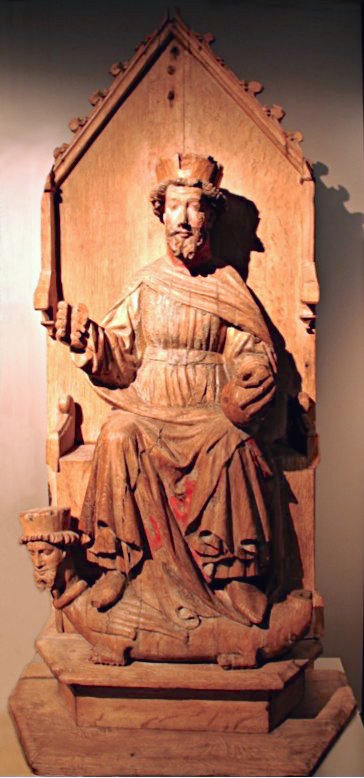"The
Heimskringla" was written around 1230 by Snorri Sturluson, a powerful
Icelandic chief living in Norway. Snorri also wrote the "Prose (or
Younger) Edda", a book about poetry that incidentally gives much valuable
information on heathen Scandinavian mythology. While Snorri's contemporaries
primarily regarded him as a politician and dangerous enemy, posterity remembers
him as a writer and poet.
"The Heimskringla" is a highly entertaining work, at least if you are a hard-core Viking or medievalist buff. The story starts in Sweden, at Old Uppsala, then moves on to Norway, with occasional landfalls in England, Spain, Constantinopel and even Jerusalem. Today, the earliest portion of "the Heimskringla", the saga of the Ynglings, is regarded as purely mythological. While Old Uppsala undoubtedly existed (the large burial mounds mentioned by Snorri still stands), it was hardly the capital of a powerful Swedish kingdom. The later parts of Snorri's work deal with real people: St. Olaf, Magnus the Good, Harald Hardruler, Sigurd the Crusader, and others. This part of "the Heimskringla" blends fact and fiction. Some has been confirmed by other medieval chronicles. For instance, Sigurd did sail all the way from Norway to Palestine around the year 1100! Much else sound like tall-tales, as when St.Olaf, still a young boy, attacks and plunders the heathen Estonians...
Even so, this work tells us a lot about how at least some groups of Scandinavians saw themselves and their world during the 13th century. To a modern reader, much of it sounds shocking. That Muslims and heathens should be killed is taken for granted. Sigurd takes a dip in the Jordan river at the spot where Jesus was baptized. Then, he moves on to kill some infidels. He never sees any contradiction. Martial prowess, at as young an age as possible, is the ideal. Most wars are actually fought between different Christian factions. Part of the heroic exploit is to capture and enslave the womenfolk of your enemies. There are also constant supernatural occurances, as when an angel stops St.Olaf from sailing through the strait of Gibraltar, or when Harald Hardruler is saved by a supernaturally risen St.Olaf!
Most of the people described in this remarkable chronicle are Christians, as was Snorri himself. Yet, it's as if the Viking Age never ended. Onward, Christian Vikings!

No comments:
Post a Comment